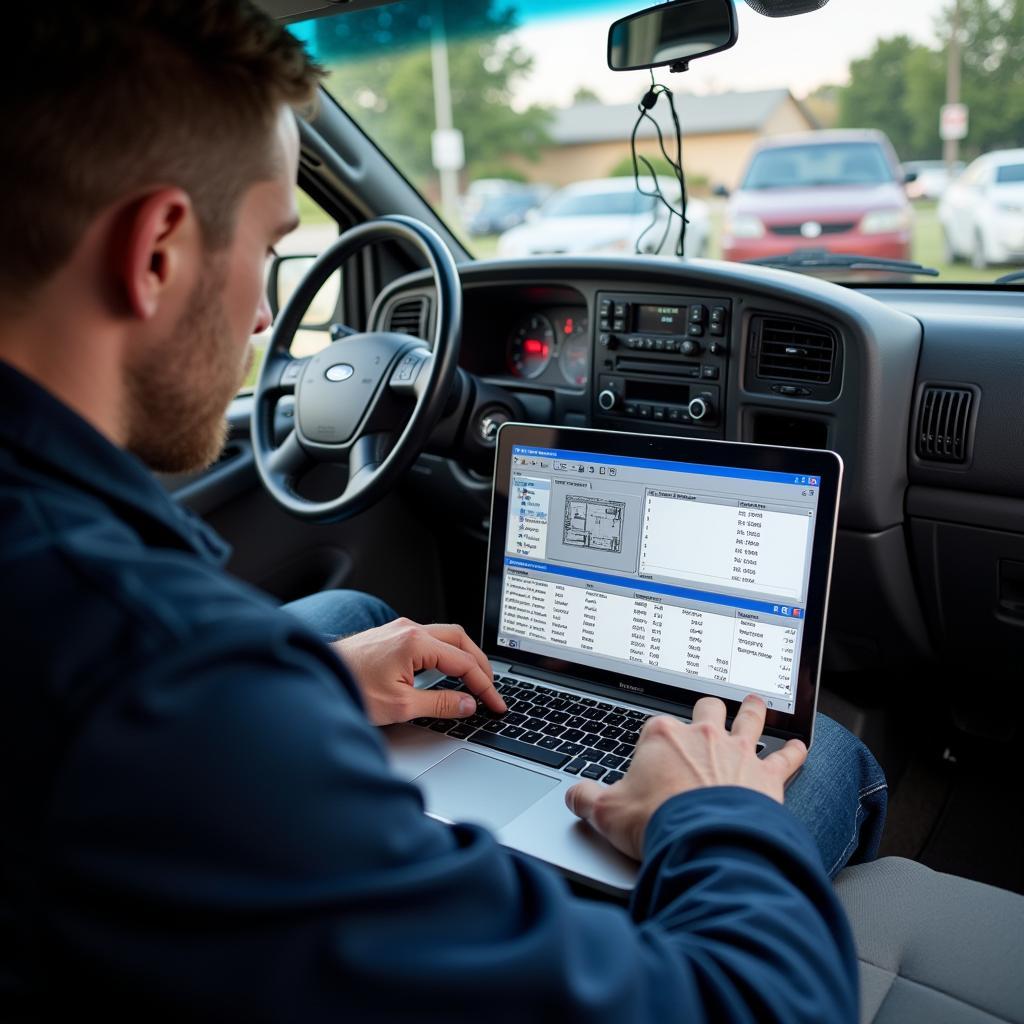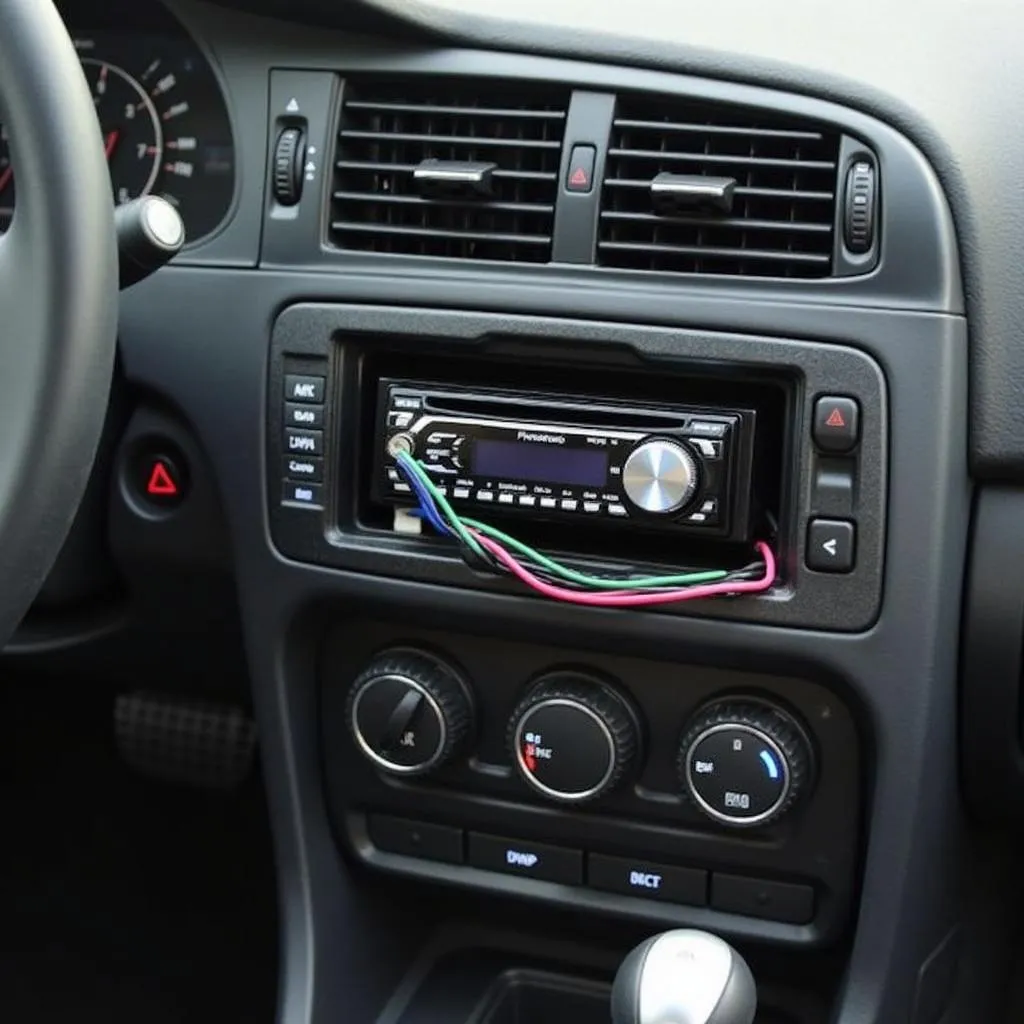The brake warning light on your BMW 325i dashboard is a crucial safety feature designed to alert you of potential issues within your braking system. While it can be triggered by something as simple as a low brake fluid level, it could also indicate a more serious problem. This comprehensive guide will walk you through the common causes of a BMW 325i brake warning light and how to troubleshoot and reset it.
Understanding Your BMW 325i Brake Warning Light
The brake warning light, often symbolized by an exclamation mark within a circle or parentheses, can illuminate in different ways:
- Solid Light: This usually indicates a low brake fluid level or a problem with the parking brake.
- Flashing Light: This typically signals a more serious issue within the ABS (Anti-lock Braking System) or DSC (Dynamic Stability Control).
Common Causes of a BMW 325i Brake Warning Light
Several factors can trigger your BMW 325i’s brake warning light:
- Low Brake Fluid: This is the most common cause. Brake fluid can decrease over time due to leaks or normal wear and tear of brake pads.
- Worn Brake Pads: Your brake pads have wear indicators that trigger the warning light when they reach a certain level of thinness.
- Faulty Brake Pad Sensor: Sometimes, the sensor itself can malfunction and illuminate the warning light even if the brake pads are fine.
- ABS/DSC Malfunction: A problem within the ABS or DSC system, such as a faulty wheel speed sensor, can also trigger the brake warning light.
How to Reset Your BMW 325i Brake Warning Light
Before attempting to reset the warning light, it’s crucial to identify and address the underlying cause. Here’s a step-by-step guide:
- Check Brake Fluid Level: Open the hood and locate the brake fluid reservoir. The reservoir is typically translucent, allowing you to visually inspect the fluid level. If it’s below the minimum mark, add the appropriate DOT 4 brake fluid. Always refer to your owner’s manual for the correct fluid type.
- Inspect Brake Pads: If the brake fluid level is adequate, visually inspect your brake pads through the spaces between the wheel spokes. If they appear thin or you notice deep grooves, it’s time for a replacement.
- Check for Leaks: Look for any signs of brake fluid leaks around the brake lines, calipers, and master cylinder. Leaks are a serious safety concern and should be addressed by a qualified mechanic immediately.
- Reset the Warning Light: In many cases, simply addressing the underlying issue, like refilling brake fluid or replacing worn brake pads, will automatically reset the warning light. However, if the light persists, you might need to use a diagnostic scanner to reset it manually.
Important Note: If you suspect a problem with your ABS or DSC system, it’s best to consult a qualified BMW technician for diagnosis and repair.
Tips to Prevent Future Brake Warning Light Issues
- Regular Maintenance: Adhere to your BMW’s recommended maintenance schedule, including regular brake fluid flushes and brake pad replacements.
- Quality Parts: Always use high-quality brake fluid and brake pads designed for your BMW 325i.
- Address Issues Promptly: Never ignore the brake warning light. Addressing issues promptly can prevent further damage and ensure your safety on the road.
When to Consult a Professional
While some brake warning light issues can be resolved with basic troubleshooting, it’s crucial to consult a professional mechanic if:
- The warning light remains illuminated after addressing basic issues.
- You notice brake fluid leaks.
- You experience unusual braking behavior, such as grinding noises, vibrations, or a spongy brake pedal.
“Ignoring a brake warning light is like ignoring a fire alarm,” says Mark Stevenson, a seasoned BMW mechanic with over 20 years of experience. “It’s always best to err on the side of caution and have your braking system thoroughly inspected by a professional.”
Conclusion
Addressing a BMW 325i brake warning light promptly is crucial for maintaining the safety and performance of your vehicle. By understanding the common causes and following the troubleshooting steps outlined in this guide, you can often resolve the issue yourself. However, never hesitate to seek professional help if you encounter complex problems or are unsure about any aspect of your car’s braking system.


